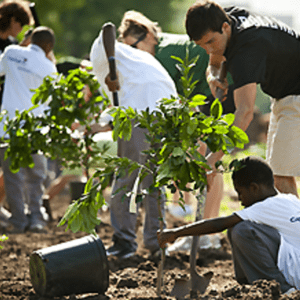Ethics In Action
Communitarian contributions to animal right-to-life & liberty

Communitarian principles and practices are centred on the socio-economic as well as ecological principle that emphasizes the importance of community values, shared responsibilities, and the common good. Unlike individualism, which focuses on personal autonomy, communitarian philosophy encourages a cooperative society, where the well-being of the whole is prioritized. Within this framework, ethical considerations pertaining to animals, become essential, particularly concerning their right-to-life and liberty.
In contemporary discussions about animal rights, the focus often revolves around the moral and ethical considerations of how humans should treat non-human animals. The principle of animal rights to life and liberty challenges humans to recognize animals as beings with intrinsic value, deserving freedom from harm, exploitation, and suffering. For communitarians who strive to live ethically within a community, aligning their lifestyle with animal rights is not just a personal choice, rather it is an essential aspect of creating a compassionate and sustainable society.
This article explores how communitarians can adapt their lifestyles to respect the life and liberty of animals, both land and sea-based, offering an in-depth look at what they must do—and avoid—to truly embody this principle.
Practicing the principle of Right-to-life & Liberty for All Creatures Great & Small
Animal rights philosophers such as Peter Singer and Tom Regan argue that animals possess inherent value and are deserving of rights, primarily the right to life and liberty. This includes freedom from unnecessary harm, captivity, and exploitation. Under this framework, animals should not be treated as mere resources for human use, but as individuals with their own interests, desires, and capacity for suffering.
Within the communitarian context, the principle of animal rights to life and liberty aligns naturally with core values, such as respect for life, mutual care, and the recognition of interdependence. Animals are not seen as detached entities, but as integral parts of the community, contribute to its ecological, emotional, and social well-being.
Contributing to Ethical Love-in-Action for Animals
Adopting A Cruelty-free Plant-based Diet
One of the most direct ways that communitarians can respect the life and liberty of animals is by adopting the Evolved Living Nutrition diet founded on the principle and practice of ‘eating from living trees’. By choosing a living foods diet and lifestyle, communitarians avoid contributing to the demand for animal products, reducing harm to both land and sea animals as well as the habitat of wildlife.
The practice of ‘Evolved Living Nutrition’ eating also aligns with the environmental and communal aspects of communitarian ethics. Industrial farming is one of the largest contributors to animal suffering, as it subjects billions of animals to confinement, mutilation, and ultimately slaughter. Animal agriculture is a leading cause of deforestation, pollution, and greenhouse gas emissions, all of which harm the community at large. By shifting towards living foods plant-based diets, communitarians not only protect animal life, but also contribute to a healthier, more sustainable environment.
Contributing to wildlife conservation
Communitarians also engage in wildlife conservation and habitat protection through ‘Right Livelihood’ projects such as land regeneration and mine-site recovery projects that involve planting millions of native and fruiting trees to feed both animals and people.
Efforts to protect natural habitats and prevent deforestation, overfishing, and pollution are essential to preserving the freedom and lives of wild animals, and therefore forefront of communitarian ‘Gathering As Activism’ activities. As part of the principle and practice of ‘Love-In-Action’, communitarians are active in local and regional as well as on-line networks to promote awareness of the methods and modes of protecting the natural habitats of both land and sea animals.
In this regard, communitarians support community projects that prioritize wildlife conservation, engage in reforestation, and actively commit to reducing human impact on natural ecosystems. By doing so, communitarians contribute to ensuring that animals retain their freedom and right to live in their natural environments, without undue interference or harm from human activity.
Fostering ethical relationships with animals
Communitarians strive to foster ethical relationships with animals, both domestic and wild. For these reasons, those who live and love in union, do not ‘bond’ animals to themselves in anyway, shape or form. This means as a general rule, communitarians, do not keep pets. Instead, animals are respected and enabled to live free to bond and associate with their own kind within their natural habitats.
For wild animals, ethical relationships are founded on respecting their natural behaviors and avoiding practices that interfere with their autonomy. This means not participating in or condoning exploitative activities such as hunting, animal entertainment (like circuses and marine parks), or keeping exotic animals as pets. In direct contrast, communitarians advocate for the protection of animal populations in the wild and avoid activities that reduce animals to mere commodities for human enjoyment or profit.
Advocating for Animal's Right to Life & Liberty
Knowing all that is at stake, communitarians take every opportunity to educate themselves and others about the moral and ethical dimensions of animal right to live free from harm or enslavement. This includes understanding the science behind animal sentience, the impact of industrial farming, and the importance of biodiversity.
By advocating for animal rights within their local and regional communities as well as on-line through social media posting, communitarians diligently work to influence cultural and legislative changes that better protect animals.
Educational programs, discussions, and community outreach can help raise awareness of the importance of respecting the lives and liberty of animals. Engaging in practical everyday activism that helps to change people’s minds, as well as advocating to ban factory farming, live exports, animal testing, and the sale of products derived from animal exploitation—also plays a crucial role in shifting societal values toward greater respect for animals.
Demonstrating Collaborative clean-green Fruit Foresting
Promoting Alternatives to Animal Agriculture
The most important prohibition for communitarians who respect animal rights, is participation in or support for factory farming. The same way human slavery has been outlawed, everywhere across the earth, likewise, No Animal should be enslaved – caged, tethered or have their movements restricted. Factory farming epitomizes the violation of the right to life and liberty for animals. Animals in these systems are treated as commodities, subjected to inhumane conditions, and ultimately killed for profit.
In addition to the direct harm caused to animals, communitarians understand that factory farming is detrimental to the environment and human communities. It is a significant source of pollution, contributing to water contamination, deforestation, and greenhouse gas emissions. Supporting these systems is inconsistent with communitarian values of sustainability, mutual care, and respect for life.
For these reasons, those aligned with ‘Right Livelihood’ principles and practices engage in demonstrations of producing clean-green food devoid of exploitive practices that involve the rape, murder and deprivation of liberty of animal. Instead, from the seventh year of association and beyond, communitarians commit careers that involve restoring and extend the fertility and productivity of earth through gardening – planting and tending fruit groves, greens and microgreen kitchen gardens, while also offering ‘safe sanctuary’ to previously farmed animals to live out their lives in freedom.
Advocating for the ban on entertainment that exploits or denies the freedom of animals
Communitarians also do not participate in, or support forms of entertainment that exploit animals. Activities such as horse & dog racing, rodeos, animal circuses, marine parks, and zoos often confine animals in unnatural conditions, depriving them of their autonomy and subjecting them to psychological and physical harm.
In some cases, animals are forced to perform unnatural behaviors for human amusement, further reducing them to mere objects of entertainment. Communitarians, who prioritize the well-being of all community members, recognize that animals, too, are members of the broader ecological community and deserve to be treated with dignity and respect.
Consuming Wisely
Considering the Impact of Consumer Choices
Many consumer products, from cosmetics to household goods, involve animal testing or the use of animal-derived ingredients. For these reasons, communitarians must be mindful of the impact of their consumer choices on animals. This involves opting for cruelty-free products, avoiding items made from animal skins, furs, or other body parts, and supporting companies that prioritize ethical and sustainable practices.
Consumer choices extend beyond food and clothing; they encompass every aspect of daily life. By choosing products that align with the values of compassion and sustainability, communitarians can reduce their contribution to systems of animal exploitation.
shedding light on the plight of marine life
The rights of sea animals are often overlooked in discussions about animal welfare. However, the overfishing of oceans, pollution, and the destruction of coral reefs and other marine ecosystems pose significant threats to marine life. For communitarians who understand the interconnectedness of all life, the well-being of sea animals must be a priority.
Practices such as commercial fishing, which indiscriminately kills vast numbers of marine animals, are condemned. Additionally, communitarians make a concerted effort to reduce their use of plastics and other pollutants that harm marine ecosystems, while also advocating for the protection of marine sanctuaries and actively supporting efforts to mitigate climate change, which disproportionately affects sea life.
sowing the Seeds of Community-wide Change
Forging the path to Global Animal Liberation through Living & loving by evolved Social, Economic and Ecological Principles & Practices
While individual and collective diet and lifestyle changes are important, realistically it is not enough to bring about the large-scale shifts needed to end the suffering of billions of land and sea animals now living in torturous conditions. Nor to curtail billions more gentle innocent creatures being brought into existence only to be slaughtered to satisfy corrupted appetites for the flesh and other secretions of sentient beings.
For these reasons, on local and regional levels, communitarians are involved in demonstrating ways to protect animals and their habitats; which includes offering vegan cruelty-free ‘Living Nutrition’ culinary workshops, avoiding the use of plastics through ‘Making’ durable clothing, footwear and furniture, recycling and upcycling, along with planning and promoting habitat regeneration projects for endangered species as part of ‘Right Livelihood’ endeavors.
Communitarians also commit their time and funds to educating the public about the plight of animals, instilling the gravity of the situation for not only animals, but for the human species and the planet as a whole – our only home. Local level, every day activism can be as simple as having a conversation about meatless diets and the health benefits as well as positive impacts transitioning to a cruelty-free diet achieves for both animals and the earth.
Honoring the Life & Liberty of All Creatures Great & Small
In aligning with the principle of animal rights to life and liberty, communitarians strive to live in a way that respects the intrinsic value of all living beings. This requires adopting plant-based diets, supporting the establishment of clean, green organic orchards and backyard kitchen gardens, fostering ethical relationships with animals, and advocating for both wildlife conservation and legislative change. It also involves refraining from practices that harm or exploit animals and taking the time and making the effort to make responsible consumer choices.
By integrating these principles into our daily lives, communitarians can help create a world where animals are treated with the respect and dignity they deserve. The communitarian vision is one of shared responsibility and mutual care, extending not only to humans but to all members of the ecological community. Through conscious choices and active advocacy, communitarians can ensure that the right to life and liberty is upheld for animals on land and in the sea, fostering a more just and compassionate world for all.








